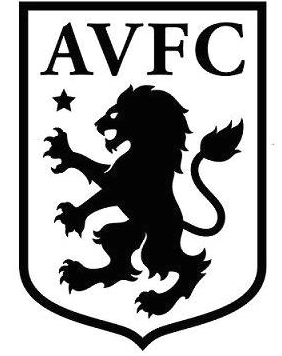Good Timing to have Good Owners
Aston Villa’s end of year financial results for the 2019/20 season have been lodged with Companies House and they will be published in the forthcoming days. Club representatives told the Villa Fan Consultation Group (FCG) in a meeting yesterday evening, that MOMS was present at, that the results were to be as expected in relation to the effects of Covid-19. The fuller picture of how the pandemic has affected the club will be seen when next year’s results come out.
With most Premier League clubs in a similar situation, when it comes to loss of match day, commercial and TV rights revenue, Villa again will be reminded that in terms of their owners Nassef Sawiris and Wes Edens, they very much got lucky in terms of the timing of the pandemic.
Imagine Covid-19 happening the season Villa lost the Championship Play-off final and were suddenly struggling to pay their tax bill, under the ownership of Tony Xia.
Currently, Villa remains debt free due to the owners injection of shareholder equity to underwrite club’s operating loss and all capital investment.
First Things, First…
The structured plans of the ownership has continued despite the pandemic, especially when it comes to rebuilding the men’s team. Villa were one of the bigger spenders in the period of the accounts, and as the club’s statement (below) states: ‘The recruitment strategy is focused on securing talented young players on long-term contracts to build long-term asset value in our playing squad.’
Ezri Konzi would be a great example already of the strategy in full-effect.
The building of the men’s and women’s squads, and the redevelopment of Bodymoor Heath, have been the initial primary concerns, as ultimately little is possible without success on the pitch first.
Villa Park Plans
The statement ahead of the forthcoming financial results also mentioned that ‘a long-term plan to improve our iconic Villa Park home and preliminary designs and schemes are now being formulated’. It has to be remembered that the last two owners also had such plans drawn up, but hopefully this time round success on the pitch will activate them.
In the short-term at least, more accessibility seats will be added in the summer to bring Villa in line with the Premier League rules. The club indicated in the FCG meeting that this would include moving the disable away fans to the away section to be with their fellow supporters.
UTV

Aston Villa Publish 2019/20 Year End Accounts Statement
In the second financial year since Nassef Sawiris and Wes Edens acquired Aston Villa, major investment in rebuilding the first team playing squad for the Premier League; strategic funding of the club’s Academy; substantial training ground infrastructure improvements and Aston Villa Women’s entry into the WSL, are the highlights of Aston Villa Group’s End of Year Accounts for the year ended May 31st 2020.
The impact of the COVID pandemic had a major effect on the financial results with significant losses of matchday income as matches went behind closed doors and a rebate being payable to broadcasters following the disruption of the season.
The suspension of The Premier League in March and the subsequent conclusion of the league season after the financial year end on May 31st 2020 resulted in £36.1m of revenue which was expected to be recognised in the financial year now being recognised in the financial year ending May 31st 2021. Although turnover for the year was £112.6m, substantially up from £54.3m in the previous year, the unexpected cost of the pandemic contributed to a total loss of £99.2m compared to £68.9m in 2018-19. Thanks to the unwavering support of our Owners, the operating loss and all capital investment has been funded by shareholder equity. Aston Villa remains debt free.
In accordance with the long term strategic plan put in place by the Board in September 2018 , the primary strategic focus in the financial year 2019-20 was to build a new first team squad capable of competing in the Premier League and a comprehensive recruitment programme of new players was completed at a cost of £155.9m. The recruitment strategy is focused on securing talented young players on long-term contracts to build long-term asset value in our playing squad.
During the financial year the Board continued its rebuilding of the Club by funding the construction of a new High Performance Centre at Bodymoor Heath. First team players, female players and academy players will benefit in the long-term from our investment in creating a world-class facility and an elite athletic working environment. The facility is now in use and will be formally opened in May 2021.
Further major investment in our Academy continues apace in line with The Board’s priority objective of developing our own talent for the future. In September 2019 we appointed Mark Harrison as Academy Manager and the club has supported him with a structured long-term plan to develop and recruit young talent across the age groups. A steady increase in call ups of our young players for international duty is a good early indicator of the improved standards we are now seeing.
On the infrastructure side, we have planned and designed a new central Birmingham satellite academy at Brookvale, adjacent to Villa Park, which is in the planning application phase and we hope this receives a favourable legislative response.
Aston Villa Women went unbeaten in their Championship season to secure their place in the Women’s Super League for the first time and our girls academy has started to produce homegrown players for our first team.
At the start of the pandemic Aston Villa made the decision not to utilise public funds via the Coronavirus Retention Scheme and did not furlough any members of staff. The Club continued to pay all employees throughout the Coronavirus period, including all our casual and matchday employees.
The important work of the Aston Villa Foundation continued throughout the year. Our charity has provided a wide range of support programmes to help some of the most vulnerable members in our communities. It was pivotal in establishing Villa Park to be utilised by the NHS throughout the year including turning our Holte End conference facility into a mass vaccination centre. The Foundation also started an innovative programme of cooking food in the under-utilised stadium kitchens for some of the city’s population who most need help.
For the 2019/20 financial year, season ticket sales were capped at an all-time high of 30,000 and we now have a substantial waiting list with Villa Park sell-outs being a welcome part of our return to the Premier League pre-pandemic. The Club offered Season Ticket holders a refund or credit note for the full value of the games which were moved behind closed doors. The Board’s strategy includes a long-term plan to improve our iconic Villa Park home and preliminary designs and schemes are now being formulated both to increase our capacity and modernise our commercial facilities.
Post-year end the 2019/20 season was completed, albeit behind closed doors and Aston Villa retained its Premier League status. Additional new investment in the first team squad was subsequently made in the shortened post-season summer 2021 transfer window all of which activity will be reflected in the 2020/21 financial year. Taken together the average of the two financial years will give a more accurate reflection of underlying results.
